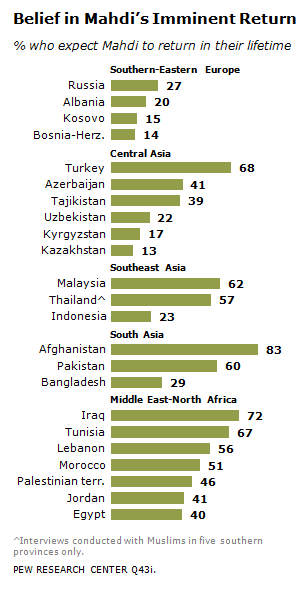Last week Global Risk Insights ran an article by Will Marshall entitled “Myanmar: Southeast Asia’s Next Frontline of Jihadism.” Marshall was part of the “New Democrat” movement, and as such has a more realistic view of foreign policy, particularly in the Islamic world, than many of today’s “progressive” Democrats. His article is actually quite illuminating and insightful in many ways. He surveys the oppression of Rohingya Muslims in Myanmar’s far northwestern province, which is now known as Rakhine but in past centuries was an independent Muslim kingdom called “Arakan.” ISIS and al-Qaeda have been trying to make inroads there, to little avail. But a new group has formed in Rakhine state: “Katibah al-Mahdi fi Bilad al-Arakan,” which I will translate for you (since Marshall never bothers to do so–probably because he cannot). It means “Battalions of the Mahdi in the Country of Arakan.”

The article discusses that Rohingya jihadists have been fighting government rule in Burma/Myanmar on-and-off since 1948, hoping to unite with their cousins across the border in Bangladesh. (Myanmar has the fifth-largest Muslim population in Southeast Asia, although far less than Indonesia or Malaysia.) Myanmar, which is overwhelmingly Buddhist and saw a military take-over in early 2021, has ramped up oppression of Rakhine state Muslims in recent years. This has prompted Salafi-jihadist groups to find ways to get involved in jihad there. A non-state group like ISIS or AQ, or a predominantly-Muslim state (Pakistan, perhaps), might have helped stand up KMBA. And Hizb al-Tahrir, transnational group dedicated to resurrecting the caliphate, is said to be recruiting Rohingya Muslims.
So a group invoking the main eschatological figure of Islam exists now in Southeast Asia, although it “has yet to claim any successful attacks and…its propaganda output remains limited.” Still, why does Marshall fail to point out anywhere in his article that KMBA is indeed named after Allah’s “rightly-guided one” who, according to hadiths, will lead the world’s Muslims to global victory? That is rather important. Either the founders of KMBA believe that they constitute the vanguard of the Mahdi’s army, or they realize the potency of the belief in his coming–and are quite ready to exploit it for political, military, and terrorist reasons. Once again, here’s an example of a Western analyst failing to see what’s right in front of him.

